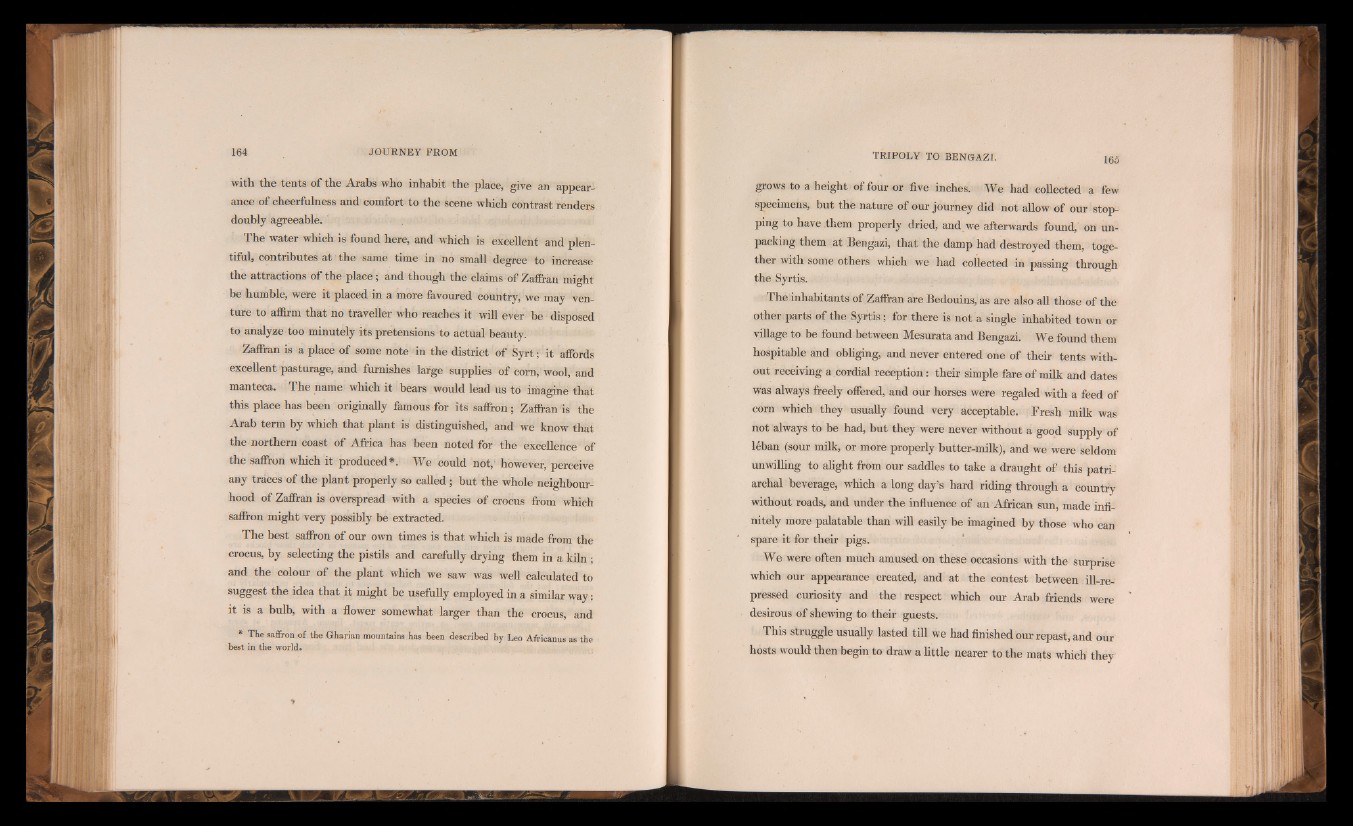
with the tents of the Arabs who inhabit the place, give an appearance
of cheerfulness and comfort to the scene which contrast renders
doubly agreeable.
The water which is found here, and which is excellent and plen-
tiful, contributes at the same time in no small degree to increase
the attractions of the place; and though the claims of Zaffran might
be humble, were it placed in a more favoured country, we may venture
to affirm that no traveller who reaches it will ever be disposed
to analyze too minutely its pretensions to actual beauty.
Zaffran is a place of some note in the district of Syrt; it affords
excellent pasturage, and furnishes large supplies of corn, wool, and
manteca. The name which it bears would lead us to imagine that
this place has been originally famous for its saflron ; Zaffran'is the
Arab term by which that plant is distinguished, and we know that
the northern coast of Africa has been noted for the excellence of
the saffron which it produced*. We could not,' however, perceive
any traces of the plant properly so called ; but the whole neighbourhood
of Zaffran is overspread with a species of crocus from which
saffron might very possibly be extracted.
The best saffron of our own times is that which is made from the
crocus, by selecting the pistils and carefully drying them in a kiln ;
and the colour of the plant which we saw was well calculated to
suggest the idea that it might be usefully employed in a similar way:
it is a bulb, with a flower somewhat larger than the crocus, and
* The saffron of the Gharian mountains has been described by Leo Africanus as the
best in the world*
mk
grows to a height of four or five inches. We had collected a few
specimens, but the nature of our journey did not allow of our stopping
to have them properly dried, and we afterwards found, on unpacking
them at Bengazi, that the damp had destroyed them, together
with some others which we had collected in passing through
the Syrtis.
The inhabitants of Zaffran are Bedouins, as are also all those of the
other.parts of the Syrtis; for there is not a single inhabited town or
village to be found between Mesurata and Bengazi. We found them
hospitable and obliging, and never entered one of their tents without
receiving a cordial reception: their simple fare of milb and dates
was always freely offered, and our horses were regaled with a feed of
com which they usually found very acceptable. Fresh milk was
not always to be had, but they were never without a good supply of
leban (sour milk, or more properly butter-milk), and we were seldom
unwilling to alight from our saddles to take a draught of this patriarchal
beverage, which a long day’s hard riding through a country
without roads, and under the influence of an African sun, made infinitely
more palatable than will easily be imagined by those who can
spare it for their pigs.
We were often much amused on these occasions with the surprise
which our appearance created, and at the contest between ill-repressed
curiosity and the respect which our Arab friends were
desirous of shewing to their guests.
This struggle usually lasted till we had finished our repast, and our
hosts would then begin to draw a little nearer to the mats which they